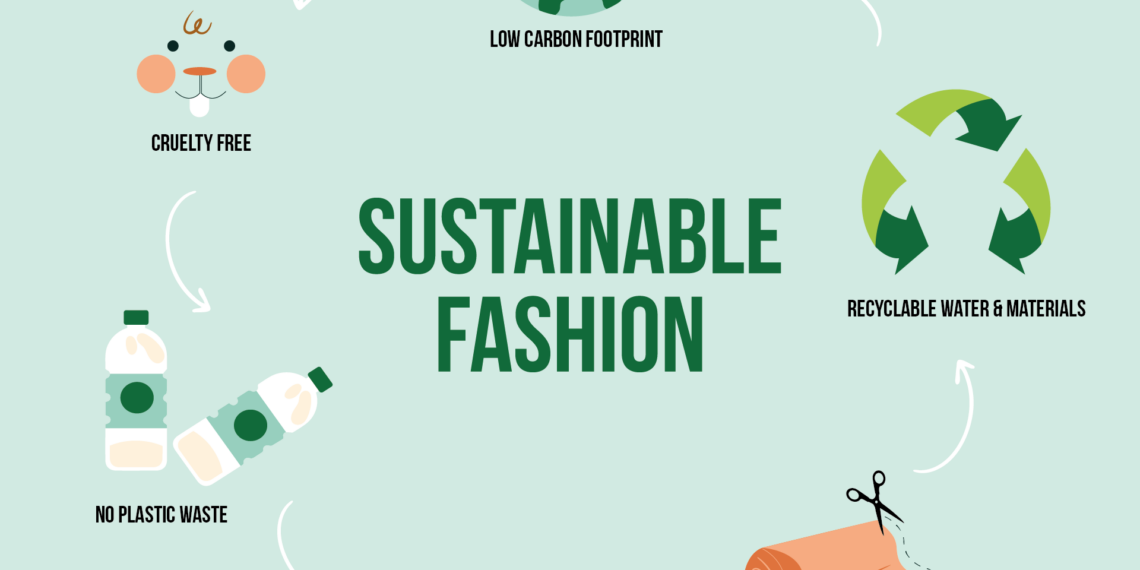The fashion industry is undergoing a major transformation as sustainability takes center stage. With growing awareness about environmental issues, consumers and brands alike are prioritizing eco-friendly fashion. From sustainable fabrics to ethical production methods, the industry is embracing greener alternatives that reduce waste, lower carbon footprints, and promote fair labor practices.
The Need for Sustainable Fashion
The traditional fashion industry has long been associated with pollution, excessive waste, and unethical labor practices. Fast fashion, in particular, contributes significantly to textile waste, carbon emissions, and water pollution. According to the United Nations Environment Programme (UNEP), the fashion industry is responsible for approximately 10% of global carbon emissions and 20% of wastewater production.
With alarming statistics like these, the need for sustainable fashion has never been greater. Consumers are becoming more conscious of their purchasing decisions, demanding transparency and responsibility from brands. This shift has led to innovative solutions that make fashion both stylish and sustainable.
Key Innovations in Eco-Friendly Fashion
1. Sustainable Fabrics
Eco-friendly materials like organic cotton, hemp, bamboo, and Tencel are gaining popularity due to their minimal environmental impact. Brands are also turning to recycled fabrics, such as polyester made from plastic bottles, to reduce waste.
2. Slow Fashion Movement
Unlike fast fashion, which promotes mass production and short-lived trends, the slow fashion movement encourages mindful consumption. It focuses on quality over quantity, promoting timeless designs that last longer and reduce the need for frequent replacements.
3. Ethical and Transparent Supply Chains
Many brands are now adopting ethical sourcing and fair trade practices to ensure workers receive fair wages and safe working conditions. Transparency in the supply chain allows consumers to make informed choices about the products they buy.
4. Upcycling and Circular Fashion
Upcycling involves repurposing old garments into new designs, reducing textile waste. Circular fashion promotes recycling and resale markets, ensuring clothing stays in circulation for longer rather than ending up in landfills.
5. Eco-Friendly Dyes and Water Conservation
Traditional dyeing processes use harmful chemicals and large amounts of water. Sustainable alternatives, such as plant-based dyes and waterless dyeing techniques, help reduce pollution and conserve resources.
Brands Leading the Sustainability Movement
Many fashion brands are stepping up to embrace sustainability. Companies like Patagonia, Stella McCartney, Reformation, and Eileen Fisher have built their reputations on ethical and eco-friendly practices. Even fast fashion giants like H&M and Zara are launching sustainable collections to meet consumer demand for greener alternatives.
How Consumers Can Support Sustainable Fashion
As a consumer, you can contribute to the movement by:
- Choosing clothing made from sustainable or recycled materials
- Supporting ethical brands with transparent supply chains
- Buying fewer but higher-quality items
- Embracing thrift shopping and clothing swaps
- Recycling and donating old clothes instead of discarding them
Conclusion
Eco-friendly fashion is not just a passing trend—it’s a necessary shift towards a more sustainable future. As brands and consumers embrace greener practices, the industry is transforming into one that values people, the planet, and style equally. By making conscious choices, we can all play a part in shaping a more ethical and sustainable fashion world.










